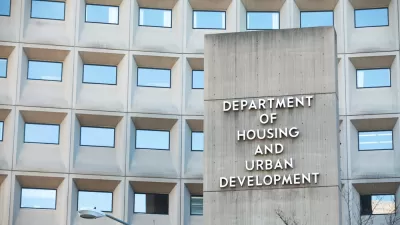A decision by the U.S. Supreme Court this week could reframe the separation of church and state, especially with regard to the flow of public funding and aid programs.

"The Supreme Court ruled on Monday that the state of Missouri cannot deny public funds to a church simply because it is a religious organization," reports Emma Green.
The relevance of the court ruling in Trinity Lutheran v. Comer is framed in this article and others for its potential to redefine the legal boundaries between church and state, but one look at the controversy that led to the court case reveals its implications for planning: the case grew out of a request by Trinity Lutheran Church in Missouri for a state grant to resurface its playground. Though the project seemed a strong candidate for the grant, "Missouri denied the funding under a state constitutional provision that prohibits public money from going to religious organizations and houses of worship."
According to Green, many states would have made the same decision as Missouri in this case, under the power of so-called "Blaine amendments." Missouri and other states will now have to re-evaluate there consideration of churches applying for funding from secular, neutral aid programs. "This is the first time the court has said the government is required to provide public funding directly to a religious organization," according to Green, with implications for such institutions as private schools, but also, significantly, for anyone who applies for competitive federal funding for development projects.
FULL STORY: The Supreme Court Strikes Down a Major Church-State Barrier

Planetizen Federal Action Tracker
A weekly monitor of how Trump’s orders and actions are impacting planners and planning in America.

Canada vs. Kamala: Whose Liberal Housing Platform Comes Out on Top?
As Canada votes for a new Prime Minister, what can America learn from the leading liberal candidate of its neighbor to the north?

The Five Most-Changed American Cities
A ranking of population change, home values, and jobs highlights the nation’s most dynamic and most stagnant regions.

San Diego Adopts First Mobility Master Plan
The plan provides a comprehensive framework for making San Diego’s transportation network more multimodal, accessible, and sustainable.

Housing, Supportive Service Providers Brace for Federal Cuts
Organizations that provide housing assistance are tightening their purse strings and making plans for maintaining operations if federal funding dries up.

Op-Ed: Why an Effective Passenger Rail Network Needs Government Involvement
An outdated rail network that privileges freight won’t be fixed by privatizing Amtrak.
Urban Design for Planners 1: Software Tools
This six-course series explores essential urban design concepts using open source software and equips planners with the tools they need to participate fully in the urban design process.
Planning for Universal Design
Learn the tools for implementing Universal Design in planning regulations.
Central Transportation Planning Staff/Boston Region MPO
Heyer Gruel & Associates PA
Institute for Housing and Urban Development Studies (IHS)
City of Grandview
Harvard GSD Executive Education
Regional Transportation Commission of Southern Nevada
Toledo-Lucas County Plan Commissions





























